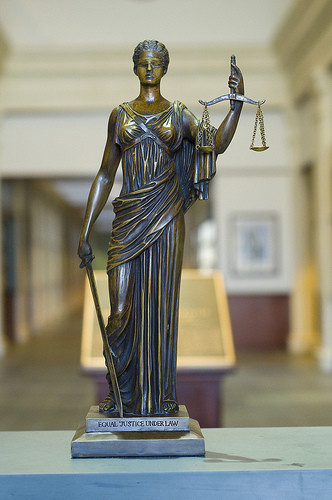
Senate President Juan Ponce Enrile proposes that all nominees for the position of Supreme Court chief justice–vacated by the recent conviction of ex-CJ Renato Corona via impeachment trial–be made to undergo a Bar examination. The idea, presumably, is to weed out those CJ-wannabes whose mastery of the law is absent or poor, leaving only the topnotchers who must therefore be the nation’s best legal minds.
But I’m not sure that subjecting the aspirants to another Bar exam will necessarily raise the bar for selection of a new Chief Justice. I have a different approach.
If I were to choose a Chief Justice, I would pick a candidate based primarily on his/her having a well-formed and robust legal philosophy–one hopefully derived from long judicial experience and study, tempered through continuous discourse, and ultimately reflective of the Philippine state’s noble ideals. Using this philosophy, s/he must then be able to unify the other justices by sheer moral force. On that basis, the enriched collective wisdom of the SC justices could then serve as a beacon with which to judge the cases placed before them and to administer the rest of the judiciary system.
A Bar exam is just a test on the mechanics of how the system works, to ensure that lawyers understand the nuts and bolts, the gears and levers of the legal system. Comparing the legal system to a ship at sea, a Bar exam merely tests the mechanical knowledge and competence of its crew. A legal philosophy, on the other hand, represents a higher level of leadership. It is a seaworthy vision, a map and compass, a sense of responsible captainship, that guides the judiciary ship and shows where we want the system to go.
Thus, if I were to choose a Chief Justice, I would let all the nominees sit down in one room, and give them an hour to write an essay explaining their legal philosophy, and how they plan to help shape the SC’s collective mind. I would then judge their capacity to serve as the coherent “conscience” of the state based on that philosophy.
A nominee for CJ-ship who doesn’t have a clearcut philosophy that s/he can put in writing in an hour is, in my opinion, one who doesn’t deserve the position even if he tops a special Bar exam conducted to screen the candidates. And equally so, an aspirant who submits a 10-page essay that cannot go beyond the hopelessly rambling thickets of “Daang Matwid” will never be short-listed in my book.
Now the question that rankles in my mind is this: Do the members of the Judicial and Bar Council (JBC), and Noynoy himself as President of the Republic, have their own respective legal philosophies, with which to measure those of the nominees they are supposed to choose from?
If they do, then they owe it to the people to explain their criteria. If they don’t, then we’re in for more mediocrity in the highest echelons of power.
###

